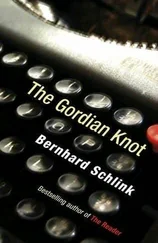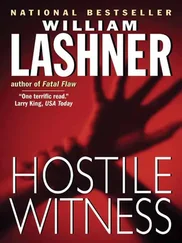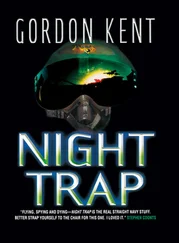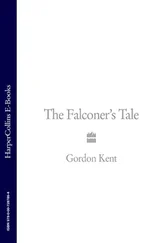Bobby Li was there.
Jerry got into a cab and told the driver to go slowly. After a block, he looked back; another cab was following.
“Fantasy Island Park,” he told his driver. When they got there, the other cab was still behind. He’d noted nobody else. He had the driver go three blocks beyond the park, and he got out; the other taxi pulled up and Bobby Li got out and followed Jerry to the park entrance without acknowledgment.
“Hey, bud,” Jerry said when he was standing in the shade of the ornate gate. Bobby Li smiled. Bobby was a smiler, one reason he still seemed like a teenager to Piat, that and his small size.
“Hey, Andy,” Bobby said. He was pathetically happy to see him.
“Come on, bud, I’ll show you where the ping-pong’s going to be.” They went into the park, which was an old-fashioned fun park crossed with a somewhat corny cultural display, none of it terribly well maintained. The centerpiece, however, was a world-class collection of orchids.
“Been here before?” Jerry said.
“I bring the kids.”
“How’re the kids?”
“Good.” A big smile. “The boy is bigger than me. Fifteen now.”
“The wife?”
“She okay. Working hard.” The Lis didn’t make a lot of money, Jerry knew. Bobby had a small business, buying and selling exotic bird skins. Jerry, in fact, had set him up in it, persuading the CIA that it was worth the investment to have an agent with decent cover and an income. It amused him that Bobby was a feather merchant, the old term for a bullshitter. Amused him because that was the last thing Bobby could be.
“How’s the business?”
“Pretty good. Lot of problems, CITES, that stuff.” He waved a hand. “Big companies cutting all the forest everyplace, no birds.”
Jerry led them to a kiosk where ethnic dancers performed several times a day. The kiosk was white, glaring in the sunlight, empty plastic chairs around it for the audience. He nodded his head toward it. “Our man is going to walk in the gate and sit here—that’s in his comm plan.” Bobby took it in but didn’t ask any questions. Agents got told what they needed to know, nothing more. “I’ll give you a photo of him. You get a guy who’ll sit here and check him out. I want him checked for guns, wire, walkie-talkie—anything. Has to be visual—can’t touch him. Maybe bump him once when the crowd’s moving, but they got to be careful, because if it’s the guy I expect, he’s a pro and he’ll know what’s up.” The guy he expected was Dukas. Dukas was the one who would get the file; Dukas was the special agent. It wouldn’t be Craik, who was Navy and would be off saving the world someplace. If Jerry’s luck was bad, it would be merely some NCIS nobody that Dukas had got to come over from Manila, and then the whole plan would have to be shit-canned. That was one reason it was a bad plan, as Jerry had pointed out to both Suter and Helmer.
He dug out a photograph of Dukas that he’d lifted from an old Agency file. “That’s him.” The picture was ten years old, and Dukas looked tough and overweight. Jerry had looked for a photo of Craik but had dug up only a useless old group photo from a squadron book in which he looked about fifteen.
Jerry led Bobby over to a food concession and bought a Philippine pancake and two green teas, and he ate the pancake with his torso pitched forward so he wouldn’t spill anything on his shirt and pants. “You get the ice bucket?” he said. They both sipped the tea.
“Not yet, Andy.” He didn’t say, It was only last night you asked for it, for Christ’s sake. Bobby never said things like that.
“I’ll show you where I want it.” Piat licked his fingers and walked toward the Orchid House, a greenhouse perched atop a concrete model of a Javanese fortress, circa 1500. They went inside, where a broad path covered in bark mould wound through two full acres of flowers, which rose so high they screened the turns of the path, preventing long sight lines and making a perfumed maze with walls forty feet high. Four entrances, each arriving from a separate path through the minipark.
It was one of the most perfect sites for a clandestine meeting that Jerry had ever seen. It was a site where a man could meet his agent while the whole world watched him, never really knowing whether they had met. It had George Shreed written all over it.
Jesus , George knew his craft.
“This is where the meeting’s going down,” he said. He led the way along the path, his left hand gently stroking the narrow leaves of a mountain orchid. “I’m going to tell you a secret,” he said. Bobby was behind him; when Piat turned, he saw that the little man looked worried. Agents didn’t usually get secrets. “Who d’you think chose this site? Go on, guess. Take a guess.” Bobby frowned still more. “George,” Piat said.
“George!”
“George Shreed picked it.” Jerry grinned. The hangover had receded and was a dull ache with a peculiar peacefulness spread over it. “I shouldn’t be telling you this. No need to know. But I thought you’d care. Because of George.” Bobby looked flustered and excited. Jerry had paid him a great compliment, made a great gesture of trust. The little man was absurdly flattered. Finally, he was able to say, “How is George?”
Jerry realized that of course Bobby didn’t know. “ George is dead, Bobby. That’s what all this is about—the people who killed him are going to make this meeting. Then we’re going to get them.”
Tears stood in Bobby’s eyes. All the pleasure of being told a secret was wiped away. “George dead ?” he murmured.
“We’re doing this for George, pal.” He touched Bobby’s shoulder. “Okay?”
Piat located the actual meeting place, where the path curved and a bench stood among the orchid plants. He pointed out the main entrance, through which their man would come, and then walked to the one at the opposite point of the compass. “And this is where our guy will come in. Then he’ll walk around that way, taking his time, back the way we just came, to the meeting place. Got it?”
Bobby nodded.
“Our guy will carry a copy of The Economist to identify himself, and he’ll also have an envelope stuffed with what will feel like money, which he’ll hand to the guy who killed George, and your team with the camera will get a good picture. Got that?”
“Got it, Andy.”
Jerry smiled. “You haven’t asked who’s going to be our guy.”
Bobby shook his head.
“Go on, ask. You can ask, it’s okay.”
Bobby knew then that he was supposed to ask. “Who?” he said, like a good stooge.
“You.” Piat laughed and slapped him on the shoulder and headed for the far wall of the greenhouse, walked boldly past a young man raking bark mould off the path and another misting leaves with water, both of whom looked at him but were cowed by his eyes. He pushed past them down a maintenance trail and on to a battered sign with “Treetops” painted on it; directly below it was a less old but hardly new sign that said “Closed.” Jerry remembered when “Treetops” (the name borrowed from the famous African lodge once visited by Queen Elizabeth) was new, a viewing platform out over the entire Orchid House, back when its trees had been young and its vines small. Built cleverly of steel pipe disguised to look like branches, it was meant to recall those game-viewing, tiger-shooting platforms once put up in real jungles. Now, the trees reached to the roof and the vines were as thick as your wrist, and Treetops was old and sagging and probably unsafe.
“Come on.”
He climbed the imitation-treetrunk stair, ignoring the thought that every worker in the Orchid House was watching them. The old viewing platform was filled with rolls of hose and cuttings, and the protective railing was broken, and the pigeons that flew in and out of the broken panes of the greenhouse had used it as their personal privy. The platform, however, looked as if nobody had been up there for years, except, he now saw, for the odd, courageous tourist who climbed up to stand in the one spot where you could see through some of the greenery.
Читать дальше












